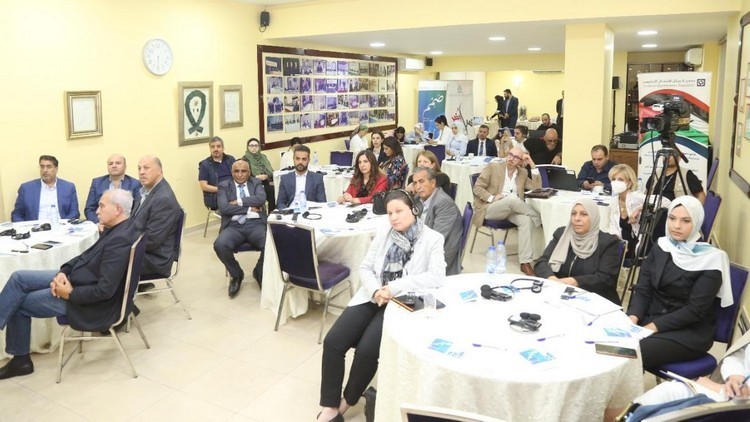AMMAN — Working on
human rights legislation pertaining to the private sector is essential to
protect individuals and communities from injustices or damage caused by
businesses, the
Arab Resistance for Democracy and Development (ARDD) said in a
statement.
اضافة اعلان
Jordan is among
the first Arab countries to sign the International Labor Organization
conventions, but Jordan’s legislation “regulating labor and human rights needs
to be further addressed”, the statement said.
“Moreover, there
is a need to address the absence of civil society organizations, and local
community representatives in accountability and sustainable development
projects,” it added.
In a bid to
tackle these issues, ARDD held a roundtable titled “Strategic Development of
Business and Human Rights Framework in Jordan” on October 26, 2022. The meeting
was hosted by the
Jordanian Businessmen Association (JBA).
Among the
participants was Felipe Daza Sierra, a professor of Human Rights and Business
at Sciences Po University Paris, and research director of the Observatory on
Human Rights and Business in the Mediterranean.
Others included
JBA board member Michael Nazzal, International Mediator Expert Jordi-Palou
Loverdos, and Jordanian senator and JBA Secretary-General Abed Al-Rahim Boucai.
Economist Raad
Al-Tal moderated the meeting, which he said, established strategic work on the
human rights and business agenda toward economic growth through collaboration.
ARDD Chief
Executive Director Samar Muhareb said the fact that the JBA hosted the meeting
“indicates the openness and flexibility of the private sector, as well as of
the importance attached to human rights, in this case in the field of business,
which needs a legal framework in order to protect the private sector and the
communities it serves”.
Daza Sierra said
the COVID-19 pandemic “caused political and economic stagnation, made many
families lose their incomes and many sectors to struggle”.

“The war on
Ukraine that followed brought even more economic challenges, including
inflation,” he said. “These successive crises are the reason for our presence
here today, to take a look at these challenges we are facing collectively, and
acknowledge the role of civil society in helping communities survive in these
challenging times.”
Daza Sierra added
that one of the state’s most important responsibilities is to ensure the
protection of human rights of individuals working in the private sector,
especially since “there have been increasing violations of human rights,
particularly by multinational businesses.”
He stressed that
“Jordan has a huge opportunity to adopt and follow political and legal tools
and arguments to progress toward sustainable economic and political
development”.
Nazzal said
Jordan was one of the first Arab countries to introduce strict labor and human
rights laws and establish specialized courts.
He highlighted
the effectiveness of the Kingdom’s defense law that prohibits employers from
terminating contracts, unlike wealthy countries where there is no such
protection.
“We have
respected human rights since the beginning of time, and we refuse exploitation
of labor,” he said. “We want to build countries able to compete with the West,
and ensure decent lives for the youth and workers, rather than just applying
minimum wages.”
Loverdos said the
UN is responsible for ensuring respect for human rights globally, “but
currently it has become the responsibility of the state to protect communities
and businesses, and to develop various tools to ensure it”.
Boucai reiterated
that labor rights are protected in Jordan, and that unions are ensuring it. He
also said that implementing international instruments could conflict with
national laws and that imposing strict laws on businessmen will backfire on the
job market and increase unemployment.
The solution, he
maintained, lies in the creation of a safe work environment for all.
Participants
recommended collaboration among the private and public sectors and civil
society to develop the human rights and business agenda, and monitor compliance
This series of
dialogue sessions were part of the Design and Determine Project implemented by
ARDD with funding from the European Regional Development and Protection
Program for Lebanon, Jordan, and Iraq,
which is supported by the Czech Republic, Denmark, the EU, Ireland, and
Switzerland.
Read more National news
Jordan News



